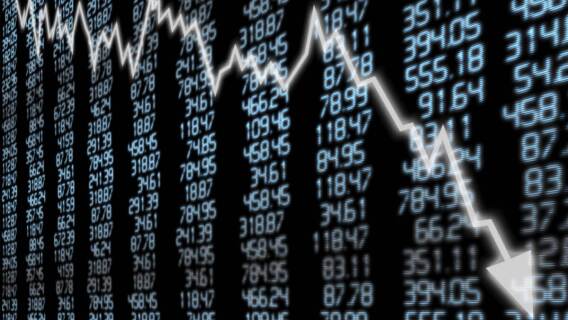Stock ownership can be an enjoyable hobby and a lucrative way to enhance your net worth. I don’t know about you, but I have no personal interest in being a landlord or handling property maintenance, so there’s zero chance that I’ll ever choose real estate as my investment vehicle of choice. But the stock market? Sign me up!
I fell in love with the stock market in 1988 during a temp job at Citicorp’s Quotron division. At that time, Quotron machines delivered stock quotes and other financial data to investment professionals across the U.S. As I sat at work, fiddling with the services offered by the Quotron machine on my desk, I loved the idea of all the numerical moving parts of stock ownership. I bought three stocks for $500 each at a discount brokerage firm named Muriel Siebert & Co., and the rest is history.
Today I’m here to talk to you about falling stock prices—and, more specifically, the reasons stocks fall. We all know that stock prices can fall, but if we can determine why they’re falling, then we can better understand whether to buy, sell or hold. Here are some common scenarios.
[text_ad]
Four Reasons Stocks Fall
A stock falls immediately upon delivering an earnings report. This happens quite often, especially with popular stocks and small-cap stocks. If the earnings report is good – meaning the company reported numbers that roughly matched the consensus estimate and did not announce any negative surprises about future business – then this is simply a situation where traders are taking profits. Presuming that the stock did not recently run up a ridiculous amount, odds are that it will bounce back quickly. This can be a good time to buy low.
A stock falls when the company announces good news. You’re scratching your head and wondering, why would my stock fall when this good news just emerged? This happened on January 28 when Guess? (GES) announced that they’d completed a CEO search and hired a very experienced industry professional. Great news, right? New CEO appointments almost always send a stock roaring upward. Instead, GES shares fell 14.6% from the previous trading day’s close. Common sense told me, “This is good news. Let’s buy low quickly.” So on January 28, I bought equity call options on GES shares, and on February 27 I sold some of those options with a 62% net profit.
A stock falls when the company announces temporary bad news. Temporary bad news can be anything from a false alarm news story to a fire at a factory to an executive being targeted in the #metoo movement. The stock’s downturn is generally dependent upon news media coverage. As soon as the situation fades from news headlines, the stock can begin its recovery. If you’re interested in buying the stock, wait for it to stop falling and let it trade at a steady share price for a short while. Then go ahead and buy low, presuming that the stock otherwise fits your normal portfolio requirements. Don’t buy stocks that don’t fit your investment strategy!
Back in December 2011, shares of Mead Johnson Nutrition Co. (MJN) fell 15% in one day, due to a speculative rumor. One baby died in an American hospital, and a second baby became ill. Mead Johnson is the maker of Enfamil, the infant formula that was used by that hospital. News stories immediately questioned whether the infant formula was to blame.
I thought about the situation. It seemed to me that if a batch of Enfamil were contaminated with bacteria, then there would be dozens of babies affected, in a multi-state area. Instead, there were two affected babies in one hospital. After reading the company’s statements about its product safety measures, I determined that this would be a brief downturn for the stock, and that news media were jumping to rash conclusions. Sure enough, the FDA assured the public that no bacteria was found in the Enfamil product. The stock began rebounding within a week, and completely recovered within two months. (Mead Johnson has since been acquired by Reckitt Benckiser Group (RB).)
A stock falls when a company announces significant bad news. It’s time to be concerned, and ready to take action, when news emerges that damages a company’s multi-year financial prospects or reputation. Whether it’s several years of misstated earnings (Hertz Global Holdings (HTZ)), suspicion of revenue fraud (Valeant Pharmaceuticals), the unexpected death of a key-man CEO, the loss of a major client or cheating on emissions tests (Volkswagen AG (VWAGY)), the stock will fall, continue to fall, and then stagnate. It could be years before the stock price recovers.
When these types of ugly scenarios occur, you’ve got to be able to take off your rose-colored glasses and say to yourself, “This is bad news. This news is not going away quickly. As a matter of fact, more bad news will probably emerge.” A classic case of bad corporate problems that led to a significant and prolonged drop in a share price is the recent case of General Electric (GE). Due to corporate mismanagement that allowed a variety of financial problems to flourish, the stock fell throughout 2017 and 2018, losing about 75% of its value.
Bottom Line
Stock investing is a learned skill. It can be complicated and frustrating. It can also be lucrative, exciting, interesting and fun. Nobody’s going to be great at stock investing right out of the gate. It takes practice and discipline. Anybody can watch a stock go up 50% and pat themselves on the back. But the amount of wisdom you exhibit on the darker days will determine your long-term success. And knowing the reasons stocks fall is a big part of that.
[author_ad]
*This post has been updated from an original version.

